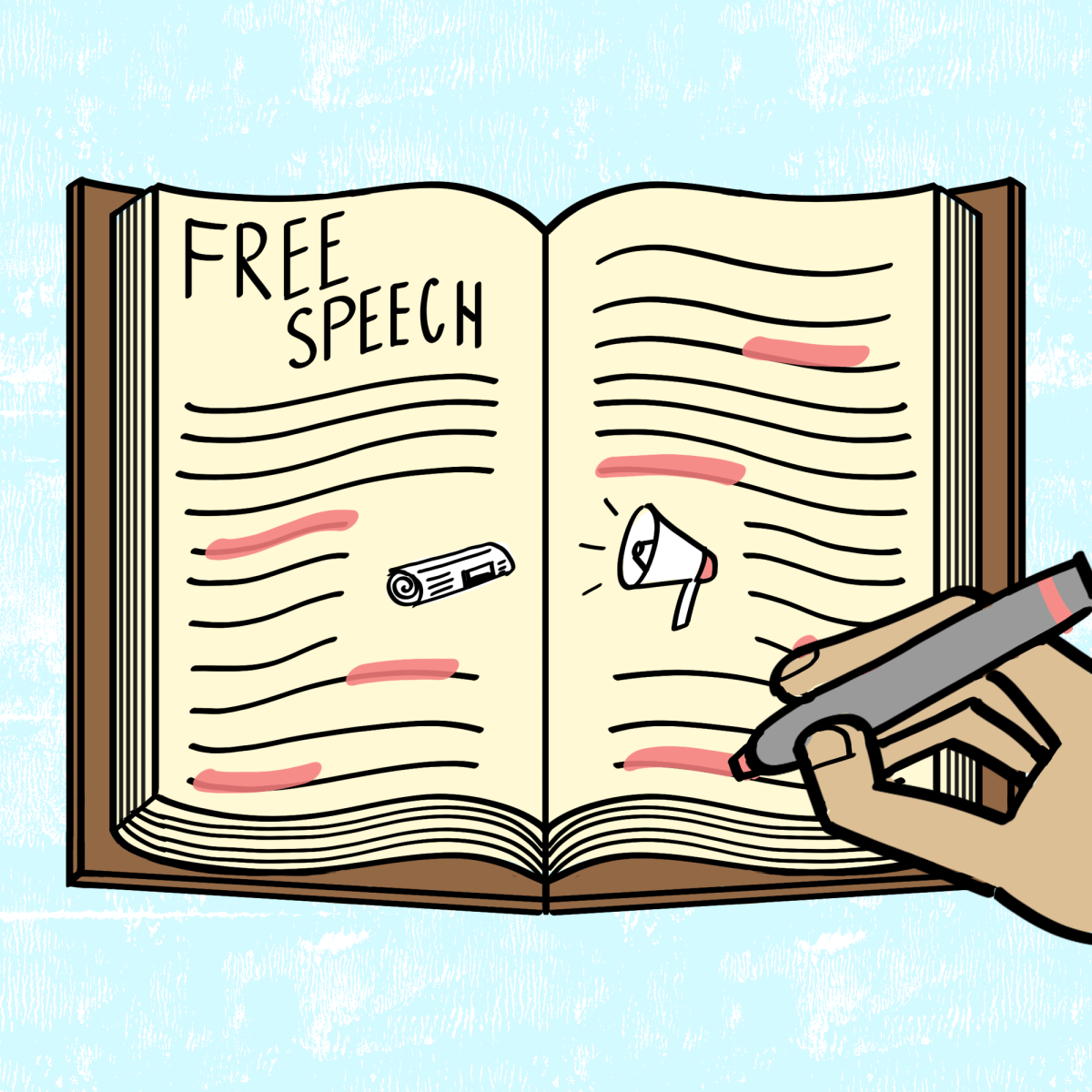UT made changes to its free speech policies over the summer, ranging from small terminology changes to entire sections added.
The University did not notify the campus community of policy changes. University spokesperson Mike Rosen said UT routinely updates its policies over the summer.
The policy changes follow UT’s crackdown on pro-Palestine protests on April 24 and April 29. City and state police arrested 136 people across both days for criminal trespassing, but County Attorney Delia Garza has since dropped all charges.
Since April, UT disciplined many students — most received a deferred suspension or academic probation — but it suspended at least one student, who was a Palestine Solidarity Committee leader.
Using archived web pages, The Daily Texan compared UT’s free speech policy on April 14 to its current policy and broke down the most significant changes.
Antisemitism and discrimination
Rosen said in an email UT added the state’s definition of antisemitism to its free speech policy in compliance with Gov. Greg Abbott’s executive order.
Issued in March, the order directs universities to update their free speech policies to include the International Holocaust Remembrance Alliance’s definition of antisemitism, which includes comparing Israeli policies to Nazi policies and describing Israel as “a racist endeavor.”
A federal judge said last week that enforcing this definition of antisemitism is likely unconstitutional because it restricts speech based on its content.
The University has a separate non-discrimination policy that prohibits discrimination or harassment based on gender, race, religion and more.
More discretion to University officials
Many policy changes give more power to University officials to determine what constitutes a policy violation, especially regarding disruption, a concept that is already “unavoidably contextual,” according to University policy.
University staff can now ask people to open containers “during periods of disruption” to check for forbidden items like weapons. If someone refuses to open a container, they will not be able to stay in the affected area with their container that is “capable of holding” prohibited items.
The University also added to a pre-existing policy forbidding all expressive activity within 10 feet of a University building. The updated policy now allows University officials to designate a larger perimeter “based on specific circumstances” to mitigate disruption inside buildings.
Brian Klosterboer, an American Civil Liberties Union attorney, and Caro Achar, an ACLU engagement coordinator, said giving University officials more room to interpret rules opens the door for rules to be enforced in a discriminatory way.
“Policies by their nature do have some room for discretion,” Klosterboer said. “That’s why it’s important for university officials to err on the side of respecting people’s First Amendment rights.”
The University added a paragraph mandating people comply with any directions from University officials or law enforcement to “disperse or cease conduct.” In many student conduct cases, the University said protesters violated policy by “fail(ing) to comply” with UTPD’s dispersal orders issued during April’s protests.
Rosen said not complying with dispersal orders has always violated University policy, but it was added to the website to be “abundantly clear.”
Amplified sound
The updated policy prohibits using amplified sound, or noise purposefully increased by external means, in common outdoor areas during the week of or before final exams. It also limits amplified sound and expressive activity from 8 a.m. to 10:30 p.m. daily, with an exemption for University activities. Drums or other instruments without amplified sound are allowed unless they become disruptive because of volume or another “appropriate” reason determined by a University official.



















